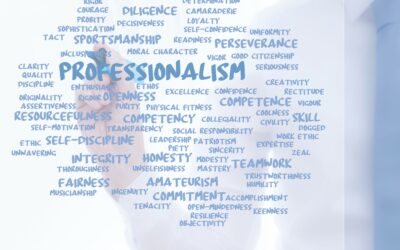Sometimes the best way for a leader to reveal how passionately they care about an issue is to get very, very angry.
I am not suggesting that a leader should use anger to intimidate people. Quite the contrary. The kind of anger I’m speaking of often enlists people to become as committed and angry as the leader.
Anger – like courage, ambition, and leadership itself – can be negative or positive. The kind of anger I’m speaking of is positive anger, the kind that is so fed up with an intolerable situation that it focuses like a laser on making a positive difference. In spiritual literature, it is often referred to as holy anger, or divine discontent. An angry dissatisfaction with the inadequacies of the present is often what’s needed to bring about the change necessary to create a better future.
To make the best use of your passion as a leader, it follows that you must be Positively M.A.D. (Making A Difference).
About a decade ago, I had the honor of serving as the editor and co-author of a wonderful book, Positively M.A.D.. The book was inspired by a conversation among a number of diverse authors who realized that anger often gives our writing its potency, and that though our messages are different, we all aim to make a positive difference in the lives of our readers. We agreed that not only are we mad, we are Positively M.A.D.!
The book includes contributions from over 50 leadership luminaries such as Ken Blanchard, Beverly Kaye, John Perkins, Chip Bell, and John Izzo. Serving as the book’s chief editor was a great honor for me.
What makes the book so special is that it is chock-full of stories about real people who, despite the complexities of the world’s problems and political state of affairs, chose to bring about the changes they wished to see in the world. Not by bellyaching, but by putting their anger to work and enlisting others to do the same.
A sampling of the stories include:
- A retired CEO who now volunteers at a hospice instead of complaining about the broken healthcare system.
- A former substance abuser who now runs a recovery facility in Savannah, Georgia, which has served over 10,000 people for drug and alcohol abuse.
- An ordinary citizen who, after learning that his neighbor might lose her home due to unfair property taxes, became an expert on Indiana’s arcane tax laws. Then he met with legislators and public officials. Eventually, largely due to his efforts, Indiana’s tax code was declared unconstitutional.
What I wrote in the book’s introduction a decade ago still holds true today:
“There’s an inverse relationship between initiative and enormity. The bigger and more challenging the issue, the less willing we are to face it head on… The challenges faced by our increasingly frenetic world are enough to make you throw up your hands in resignation… Despite the complexity of the word’s problems and inadequacies, and despite our frustration with the current state of affairs, we can indeed Make A Difference. Regardless of our station in life, each of us is entitled, if not obliged, to etch our initials onto the tree of humanity.”
Oct 26th is Make A Difference Day. As the day approaches, reflect on this important question:
Are you M.A.D.?




